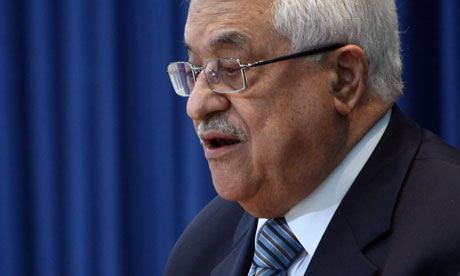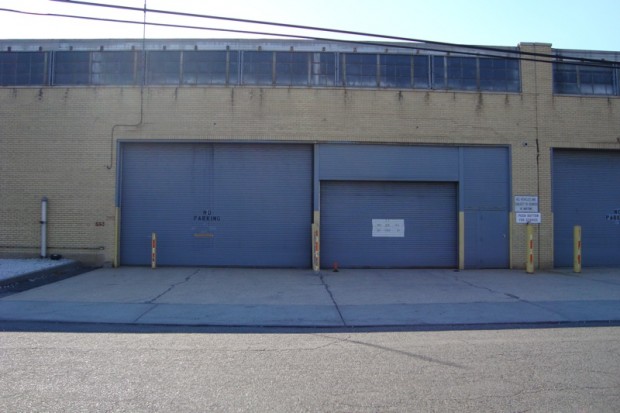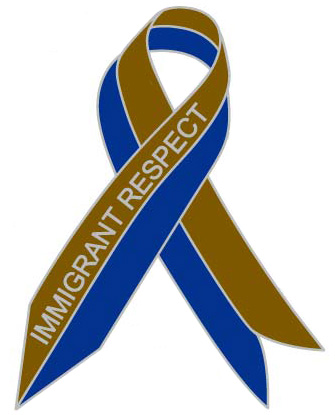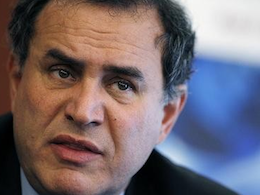Model United Nations
In Model UN, students step into the shoes of ambassadors from UN member states to debate current issues on the organization’s agenda. Students make speeches, prepare draft resolutions, negotiate with allies and adversaries, resolve conflicts, and navigate the conference rules of procedure – all in the interest of mobilizing “international cooperation” to resolve problems that affect countries all over the world…
Court says public has right to video police in public places
Court says public has right to video police in public places
A Boston lawyer suing the city and police officers who arrested him for using his cell phone to record a drug arrest on the Common won a victory today when a federal appeals court said the officers could not claim “qualified immunity” because they were performing their job when they arrested him under a state law that bars audio recordings without the consent of both parties.
In its ruling, which lets Simon Glik continue his lawsuit, the US Court of Appeals for the First Circuit in Boston said the way Glik was arrested and his phone seized under a state wiretapping law violated his First and Fourth Amendment rights:…
Nouriel ‘Dr. Doom’ Roubini: ‘Karl Marx Was Right’
Nouriel ‘Dr. Doom’ Roubini: ‘Karl Marx Was Right’
There’s an old axiom that goes, “wise is the person who appreciates candor almost as much as good news.” With that as a guide, place the forthcoming decidedly in the category of candor.
Economist Nouriel “Dr. Doom” Roubini, the New York University professor who four years ago accurately predicted the global financial crisis, said one of economist Karl Marx’s critiques of capitalism is playing itself out in the current global financial crisis.
Marx, among other theories, argued that capitalism had an internal contradiction that would cyclically lead to crises, and that, at minimum, would place pressure on the economic system.
Companies, Roubini said, are motivated to minimize costs, to save and stockpile cash, but this leads to less money in the hands of employees, which means they have less money to spend and flow back to companies.
Now, in the current financial crisis, consumers, in addition to having less money to spend due to the above, are also motivated to minimize costs, to save and stockpile cash, magnifying the effect of less money flowing back to companies.
“Karl Marx had it right,” Roubini said in an interview with wsj.com. “At some point capitalism can self-destroy itself. That’s because you can not keep on shifting income from labor to capital without not having an excess capacity and a lack of aggregate demand. We thought that markets work. They are not working. What’s individually rational … is a self-destructive process.”…
Cultural History of German Law Since the Renaissance
Cultural History of German Law Since the Renaissance
History 230A/B Tuesday: 4:00-7:00
Winter/Spring 1995
Haines 82
Mr. Sabean
This research seminar is an introduction to the history of German legal culture and practice. During the winter quarter, students will read widely in the secondary literature and report on various themes. Each session will be composed of three parts: 1) discussion of a book assigned to all participants; 2) a report by one of the participants on a particular issue; 3) the close reading of a short text. The Spring quarter will be devoted to discussion of research papers presented by students…
Palestinians to present statehood bid to UN general assembly

Palestinians to present statehood bid to UN general assembly
Palestinian leaders have said that they will formally request recognition of their state and full membership of the UN next month, despite strong US opposition amid warnings that such a move would jeopardise future peace talks.
Mahmoud Abbas, the Palestinian president, will personally present the application to the UN secretary-general, Ban Ki-moon, before the UN general assembly opens on 20 September.
The UN has the moral, legal, political and historical responsibility to recognise Palestine and “to put an end to the Israeli occupation”, said Ryad Malki, the Palestinian foreign minister.
Abbas is to travel to Lebanon on Tuesday to discuss the plan. Lebanon will hold the rotating presidency of the UN security council next month and is expected to be sympathetic to the Palestinian campaign…
‘Make a Movement’ Sundays: 9/11 (The War on Immigrants), September 11, 10-5pm

‘Make a Movement’ Sundays: 9/11 (The War on Immigrants), September 11, 10-5pm
The attacks of September 11, 2001 and the emergence of The War on Terrorism have produced aggressive networks of punishment, mass warehousing, and criminalization that deploy an unjust system of detention and deportation. Recent reports and academic research indicate that the U.S. government’s trend has been to increase the privatization of the detention center system as a way to increase national security measures. With the help of scholars, activists and legal advocates, awareness about the conditions and treatment of detained immigrants help in pressuring government officials to adopt reformative detention guidelines. To address this current reality, ‘Make a Movement’ Sundays: 9/11 (The War on Immigrants)” IRATE/First Friends will train people to participate in a visitor program to visit immigrants detained at the Elizabeth Detention Center in Elizabeth, NJ. After the training the participants will travel to Elizabeth to visit immigrants who have been converted into prisoners of the ”nation of immigrants.”
Please RSVP before Sept. 9 at 5pm to people@immigrant-movement.us. Please note that it is important to bring a valid ID or a passport and proof of residency (like a bill sent to your house).
Event Schedule:
9:30 – 10:00 am : Everyone arrives at Immigrant Movement International HQ. We will also be doing a pick up in Manhattan, let us know if you would rather meet there.
10:00 am: Leave to Elizabeth
11:00 am: Arrive at St. Mary – The Assumption Parish (321 South Broad St., Elizabeth, NJ 07203)
11:00 am – 12:00 pm: Visitor training session led by Sally Pillay
12:00 pm: Leave to the detention center
12:10 pm: Arrive at Elizabeth Detention Center (625 Evans Street, Elizabeth, NJ 07201)
12:10 pm – 1:00 pm: Visit male immigrants
1:00 pm – 2:00 pm: Visit female immigrants
2:00 pm – 3:00 pm: Meet with group, start drawings
3:00pm - Transportation back to IM International HQ
4:00pm – Arrive back at IM International HQ.
‘Make a Movement’ Sundays is a community-oriented event series which takes place the first Sunday of every month.
NYFA Immigrant Artist Project Newsletter
Tania Bruguera is NYFA’s Immigrant Artist Project Featured Artist this month. Here is the interview conducted by Program Officer Karen Demavivas and Intern Emily Chen:
IAP: You grew up during the political upheaval of the Cuban Revolution, the daughter of a Cuban diplomat and an English translator and sociologist. How does your upbringing shape your art and what was your experience like when you moved from Cuba to pursue your career in the States?
TB: I grew up while the Cuban Revolution transformed from being the hopeful ideal for the rest of the developing countries and an exemplar case study for the western left, into a revolution that had to endure the debacle of the rest of the socialist countries and adapt its ideological concepts just to be able to survive at any cost. I lived the Cuban Revolution of the Opción Cero, the times of a Revolution without options.
People living in countries with totalitarian regimes do not have the privilege of being trusted by those who govern them. Social trust allows for not having to get involved in politics. People in totalitarian countries do not have the luxury of choosing if they want to be directly involved in the social project they are living in; rather, it becomes their primary duty as citizens. But it is a duty that is really a directive and therefore for most is just simulacra — where you don’t have a real participation or impact in the process but are required to be an enthusiastic crowd.
Here is where dissatisfaction and dishonesty resonates in the construction of such “exemplar” citizens. In this sort of political system, the problem starts when you think like the propaganda to which you are exposed. Propaganda is mostly not to be understood but to be followed; an understanding is assumed to come later but belief in it is assumed to be immediate. There is a syncing problem between what is proposed and what is happening in social behavior and sometimes politics does not want the future behavior to happen now.
IM International may be the farthest project I’ve ever done from the biennale circle, from the art world even.
In your house, when politics is the job and passion of your parents, it becomes quotidian and, in a way, theoretical because people who are involved in politics inside the power structure have a more abstract relationship with the consequences of their political decisions. Abstract approaches to politics give you a greater satisfaction because you can think in heroic terms, especially when you’re distanced from the people who face the consequences of your decisions and you cannot directly see the details of the collateral damages. In Cuba, the government disconnected from the reality lived by its people and at some point it stopped listening to them. Two parallel realities started to coexist: one lived for the pragmatic continuity of a system and another where everything became illegal. The Cuban Revolution’s reality was committed to ideas and not to an everyday experience.
Due to the diplomatic work of my father, we were always removed from the reality we were “defending” (the revolutionary project). Revolution was a word, and it was not associated with an attitude towards injustices and desire for change, but rather with a “brand” belonging to a certain generation in power in Cuba and their historical trajectory. It was a word stripped of its meaning. When I came back to live in my country as an adolescent, I was a believer in the revolutionary project and it took me living on the other side of those political decisions to understand the disparities between the projection of the project and the reality of it. My work as an artist exists in this crossroad because I have not stopped believing but I see what is really happening.
All this previous experience between the dreamed society and the real one came very handy once I came to a country like the United States.
But I have to say that I did not move from Cuba to pursue my career in the States. This is in fact one very common assumption when people come to the United States. I still go to Cuba and I’m not interested in pursuing a career in the United States in the way it is assumed in your question. I was here studying for my master’s and worked for a few years teaching. Then I left the United States to move to Europe and I just came back for the Immigrant Movement International project but it doesn’t mean that I will stay here. The United States, so far, has been a transitory station.
IAP: You have shown works of visual and performing art in previous years at the Venice Biennale, a forum in which national identity and international politics heavily inform presented works. How did these past works pave the road to IM International and your decision to engage local audiences instead of, or in addition to, international ones?
TB: The Venice Biennale is an art event with no context other than the history of itself. It is the hardest exhibition space I’ve worked at because no matter what you do, it will be seen as an aesthetic experience. It becomes an experience in and of itself where the artist and the piece are responsible for creating the context. The national pavilions are seen since long ago as archaic rhetoric forms. With Harold Szeemann’s Aperto, the idea of national identity via a pavilion started taking an interesting turn because it is ridiculous to think that a single artist with a single short-term art proposal can serve as a thermometer of a nation’s ideology in a foreign context (We all know by now about the ideological maneuvers behind the fame of the Guernica.). Also, we know how flexible forms are towards ideology. The idea of migration is something we see more and more in these contexts: interchanged identities and national territories as temporal landscapes when artists behave as immigrants.
I have thought lately of starting to participate at those events as an independent. I guess that would be equivalent to participating at the “Pavilion of Oneself.”
Those events can give you permission to react personally towards issues greater than yourself but, in general, they don’t give you the idea or requirement of responsibility. That is my concern with those art events: thinking without accountability.
IM International may be the farthest project I’ve ever done from the biennale circle, from the art world even.
I would like to mix two audiences — the one trained to imagine the impossible and the one that is hardly permitted to do so; the audience that is entitled to be international with the one that is forced to be local even if they come from another place in the world; the audience that can’t escape their condition of citizenry and the one that has to be compelled to become a citizen. Both artists and immigrants dream of a different future.
For me, the idea is to bridge the language of contemporary art and that of urgent politics. For that, we need the perspectives of the local as well as the international crowd.
My past works paved the road to IM International in the sense that the work has demanded more and more radicalization in the ways in which it interacts with the real, in the ways in which I have to get away from concerns of whether it is art or not.
IAP: The IM International Headquarters used to be a beauty supply store in Corona, Queens. How did you choose the space? Since you’ve started your intervention there, have you noticed a shift from local people coming in to look for concrete social services to them opening up to a more creative engagement with the space?
The space is in front of a lumber/hardware store, next to a rather big supermarket and at the exit of the 111 street train stop. I was thinking at the natural traffic already happening at that intersection, of people whom we wanted to work with. I realized that there were no community associations around that focused on immigration and thought about the use of our project in that area.
We have some crowded English classes, classes held by the Paper Orchestra for children under 8 years old, and we are getting there with the cinema club. We hosted those events in collaboration with New Immigrant Community Empowerment and Corona Youth Orchestra. They bring their community and we try to do outreach in ours. It is a balance between what you know you want or need and what we want you to know that you could appreciate. But we have a long way to go. Before this project, I was in crisis about the value of art. By doing this work, I have recovered some faith in the usefulness of art.
IAP: You observed on the IM International blog that the same symbols are used in political rallies until they become clichés, noting that your roommates from Ecuador have lost faith in the traditional modes of effecting reform. On the other side, you question the whole notion of a permanent political truth (that is even able to morph into a cliché) – noting such truth as ephemeral. How do you see the ‘Useful Art’ of IM International informing or being a new vehicle for these debates?
TB: Well, once you put political on anything you are talking negotiable truth. Even people who understand social timing would be discouraged and faithless after 10 years of waiting for some sort of regularization of their legal situation. If to that you add the fact that the language that is used is completely old, circular and predictable, how are you going to be able to imagine change?
Right now, the dreamers who are fighting for the Dream Act are leading a wonderful performative process. It is one that brilliantly applies the inherited contradictions about the image of immigrants and what its rightfulness means — not only for the immigrants themselves, but also for the country.
The usefulness of art is what bridges politics and art, artists and non-initiated audiences. Behavior is the language through which society communicates and usefulness is the way in which society pays attention, makes statements, and serves people. If you are interested as an artist to deal with the social and the political, usefulness is the primary medium you work with.
I’m interested in the process of transforming affect into effectiveness.
IAP: How will you collaborate with artists who work with immigration as a theme? How will they bring social survival strategies into the discourse of this project?
TB: We are open for proposals and are mostly interested in artists doing Useful Art and also those who want to act politically with their art practice instead of using politics as a theme to be represented. We are looking for art projects working in hyperrealistic ways. We are interested in art projects combining the language of avant-garde and the one of urgent politics.
Link to NYFA newsletter
Link to more info about NYFA’s Immigrant Artist Project




